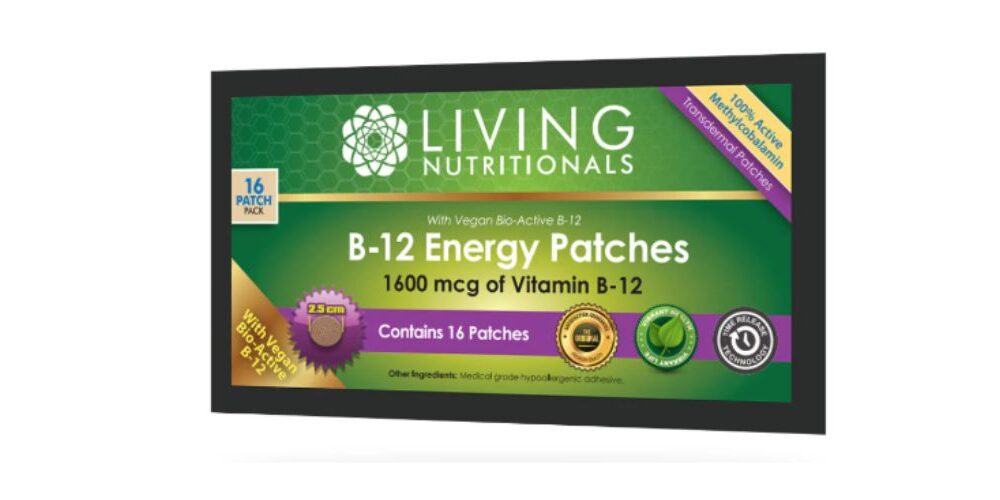Why Is Nutrition Key to a Healthy Life?

Good nutrition is the foundation of a healthy life. The foods and nutrients we consume directly impact our physical, mental, and emotional well-being. Whether you are looking to maintain optimal energy levels, support immune function, or improve cognitive health, paying attention to what you eat is crucial. Supplements like a B12 vitamin patch can also play a role in ensuring your body gets the necessary nutrients. Understanding why nutrition matters can empower you to make better choices for your long-term health.
The Role of Essential Nutrients
Our bodies require a wide range of nutrients to function properly. These include macronutrients like carbohydrates, proteins, and fats, as well as micronutrients such as vitamins and minerals. Each of these plays a unique role in supporting bodily functions:
- Carbohydrates provide energy for daily activities and brain function.
- Proteins are crucial for muscle growth, repair, and the production of enzymes and hormones.
- Fats support brain health, hormone regulation, and cell function.
- Vitamins and minerals assist in everything from immune support to bone health and metabolism.
Without a balanced diet, the body can experience deficiencies that may lead to fatigue, weakened immunity, and long-term health issues.
How Nutrition Impacts Overall Health
Energy Levels and Physical Performance
The body relies on proper nutrition to maintain energy levels. Complex carbohydrates, lean proteins, and healthy fats help sustain energy throughout the day. Without proper fuel, fatigue and sluggishness can set in, affecting daily productivity and physical performance. Nutrient-rich foods help improve endurance and recovery, making them essential for athletes and active individuals.
Immune System Support
A strong immune system depends on a variety of nutrients, including vitamins C, D, and E, as well as zinc and selenium. These nutrients help the body fight off infections and reduce inflammation. A well-balanced diet with plenty of fruits, vegetables, nuts, and lean proteins can boost immune function, reducing the risk of illness.
Brain Health and Cognitive Function
Nutrition plays a crucial role in brain function. Omega-3 fatty acids, found in fish, flaxseeds, and walnuts, support cognitive health and reduce the risk of neurodegenerative diseases. B vitamins, including B12, are essential for nerve function and mental clarity. Those with difficulty absorbing B12 from food sources may benefit from supplementation, such as a B12 vitamin patch, which provides an efficient alternative to oral supplements.
Heart Health
A heart-healthy diet includes plenty of fiber, lean proteins, and healthy fats while minimizing processed foods, excessive sugar, and trans fats. Consuming whole grains, nuts, and leafy greens can lower cholesterol and blood pressure, reducing the risk of heart disease. Omega-3 fatty acids are particularly beneficial for maintaining cardiovascular health.
Digestive Health
The digestive system relies on fiber, probiotics, and adequate hydration to function properly. Fiber-rich foods like whole grains, fruits, and vegetables support healthy digestion and prevent constipation. Fermented foods such as yogurt, kimchi, and kombucha introduce beneficial bacteria to the gut, promoting a balanced microbiome and reducing digestive discomfort.
Common Nutritional Deficiencies and Their Impact
Even with a balanced diet, some individuals may experience nutrient deficiencies due to lifestyle factors, medical conditions, or dietary restrictions. Common deficiencies include:
- Vitamin D deficiency, which can lead to weakened bones and increased risk of infections.
- Iron deficiency, which can cause fatigue, dizziness, and weakness.
- Vitamin B12 deficiency, which may result in nerve damage, memory issues, and anemia.
- Magnesium deficiency, which can contribute to muscle cramps, stress, and poor sleep quality.
Addressing these deficiencies through diet and supplementation can help restore balance and improve overall health.
The Role of Supplements in a Healthy Diet
While whole foods should always be the primary source of nutrients, supplements can be useful in bridging gaps. People with dietary restrictions, such as vegans or those with food intolerances, may struggle to get adequate amounts of certain vitamins and minerals. In such cases, supplements like omega-3 capsules, vitamin D drops, or a vitamin C patch can help meet daily requirements efficiently.
It is always advisable to consult with a healthcare provider before adding supplements to your routine to ensure they are necessary and safe for your specific needs.
Healthy Eating Habits for Long-Term Wellness
To maintain a nutritious lifestyle, it is important to develop healthy eating habits. Here are a few simple guidelines:
- Eat a variety of whole foods. Incorporate a mix of fruits, vegetables, lean proteins, whole grains, and healthy fats.
- Stay hydrated. Water is essential for digestion, circulation, and temperature regulation.
- Limit processed foods. Reducing sugar, refined carbs, and unhealthy fats can lower the risk of chronic diseases.
- Practice portion control. Being mindful of portion sizes helps prevent overeating and supports weight management.
- Plan meals ahead. Preparing meals in advance can help ensure balanced eating and reduce reliance on fast food.
Conclusion: Make Nutrition a Priority
Nutrition is one of the most powerful tools for maintaining long-term health and well-being. A balanced diet filled with essential nutrients supports energy levels, immune function, heart health, and brain function. Addressing potential deficiencies through mindful eating and appropriate supplementation, such as a B12 vitamin patch, can help optimize your health journey.
By making conscious food choices and adopting healthy eating habits, you can take control of your well-being and enjoy a vibrant, energetic life. Start making small changes today and experience the transformative power of good nutrition.





